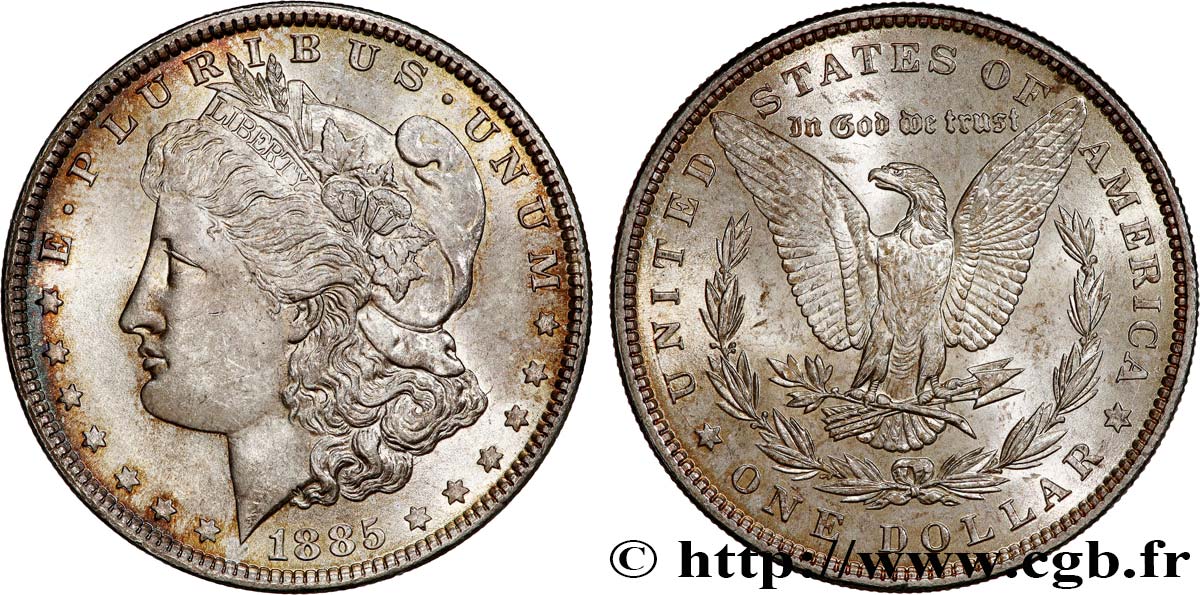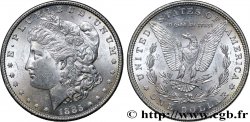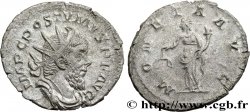fwo_745319 - UNITED STATES OF AMERICA 1 Dollar Morgan 1885 Philadelphie
120.00 €(Approx. 136.80$ | 103.20£)
Quantity
Add to your cart

Type : 1 Dollar Morgan
Date: 1885
Mint name / Town : Philadelphie
Quantity minted : 17787000
Metal : silver
Millesimal fineness : 900 ‰
Diameter : 38,10 mm
Orientation dies : 6 h.
Weight : 26,77 g.
Edge : cannelée
Coments on the condition:
L’exemplaire présente seulement quelques infimes marques de manipulation
Obverse
Obverse legend : E . PLURIBUS . UNUM // 1885.
Obverse description : tête à gauche de femme symbolisant la Liberté.
Reverse
Reverse legend : UNITED - STATES OF - AMERICA // * ONE DOLLAR *.
Reverse description : aigle aux ailles déployées tenant une branche d’olivier et deux flèches ; couronne de laurier et motto “In God we trust”.
Commentary
En 1873, le « Fourth Coinage act » met fin au bimétallisme et les monnaies en argent sont démonétisées. Cependant dès 1876, de nombreux projets de lois sont proposés afin de réintroduire des dollars en argent. En 1878, Rutherford B. Hayes tente en vain de faire véto au «Bland-Allison Act » au Congrès. Dans cette optique, dès 1876, Henry Linderman, directeur de l'US Mint demande alors à C.W. Fremantle, deputy master de la Royal Mint de Londres, de lui trouver un graveur de coin de premier rang. Ce sera Charles T. Morgan (1845-1925) qui devient assistant graveur auprès du graveur en chef William Barber. Dès 1877, Morgan travaille sur des essais monétaires et prépare son projet de dollar argent. Ainsi en 1878, seulement une semaine après le passage de la loi, l'atelier de Philadelphie frappe des dollars dits « Morgan ». Charles Morgan succèdera à Charles E. Barber (fils de William Barber) en 1917.








 Report a mistake
Report a mistake Print the page
Print the page Share my selection
Share my selection Ask a question
Ask a question Consign / sell
Consign / sell
 Full data
Full data







